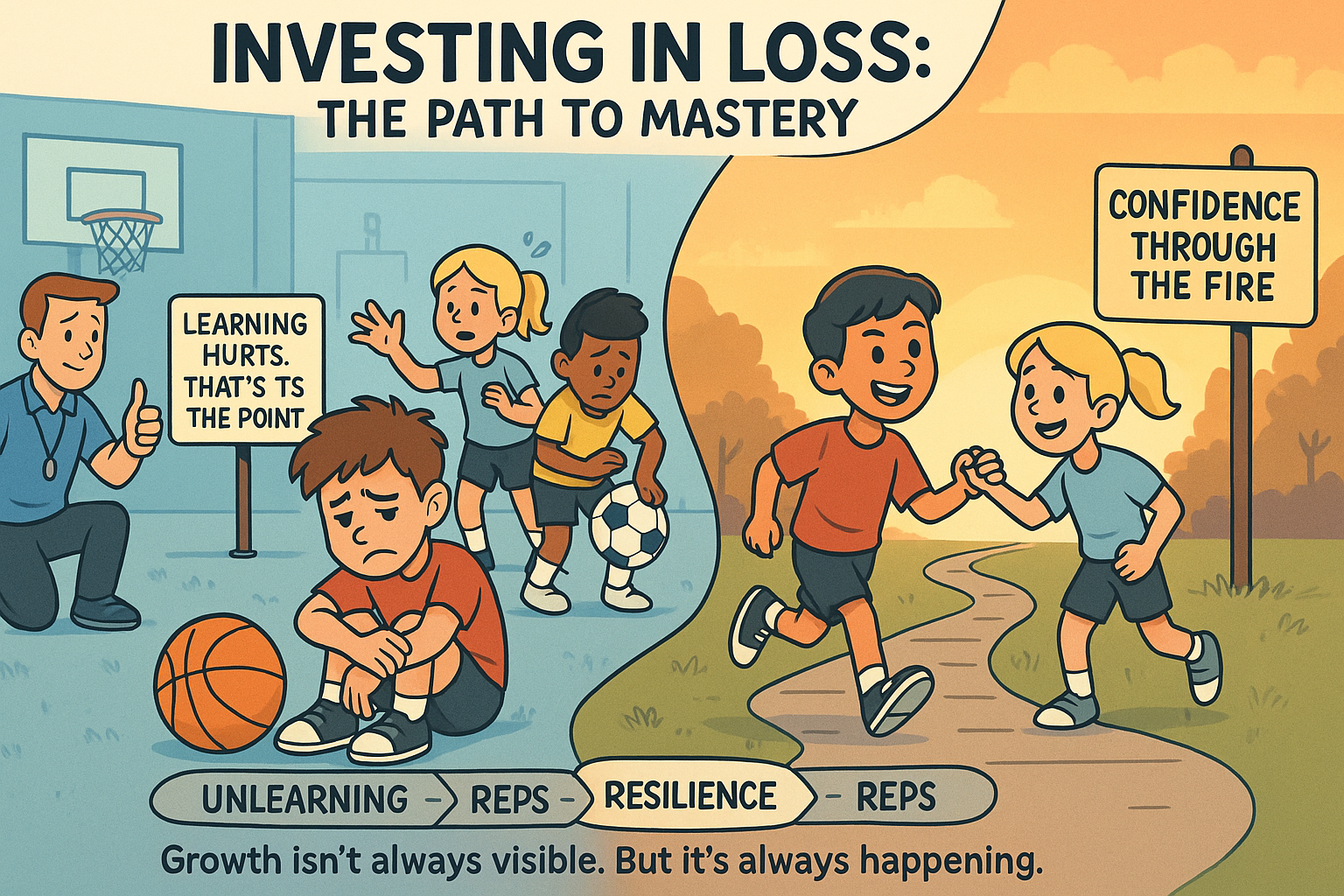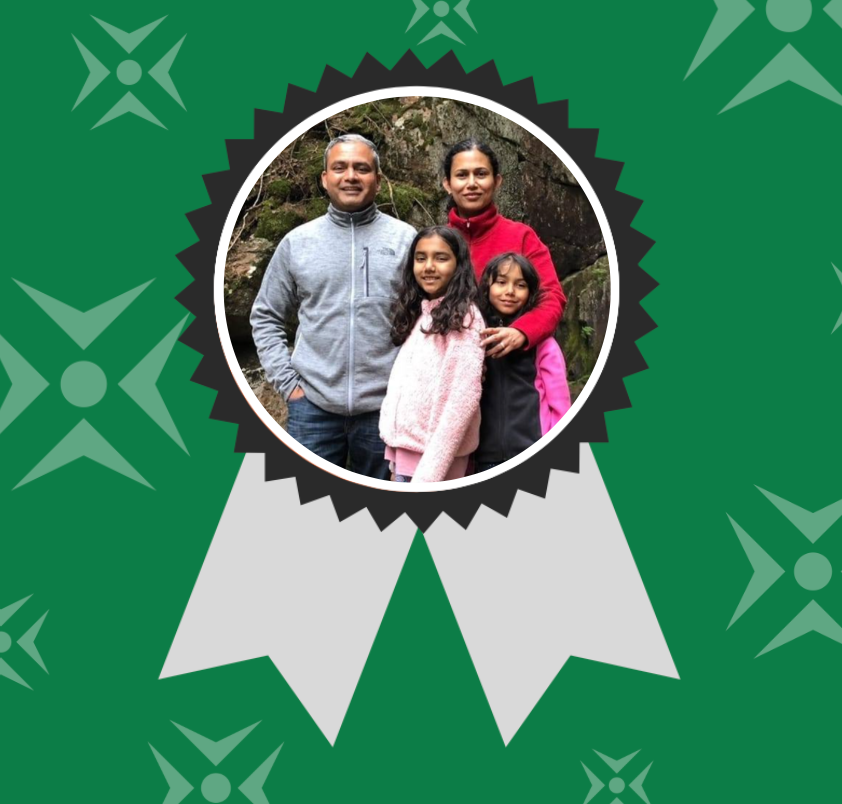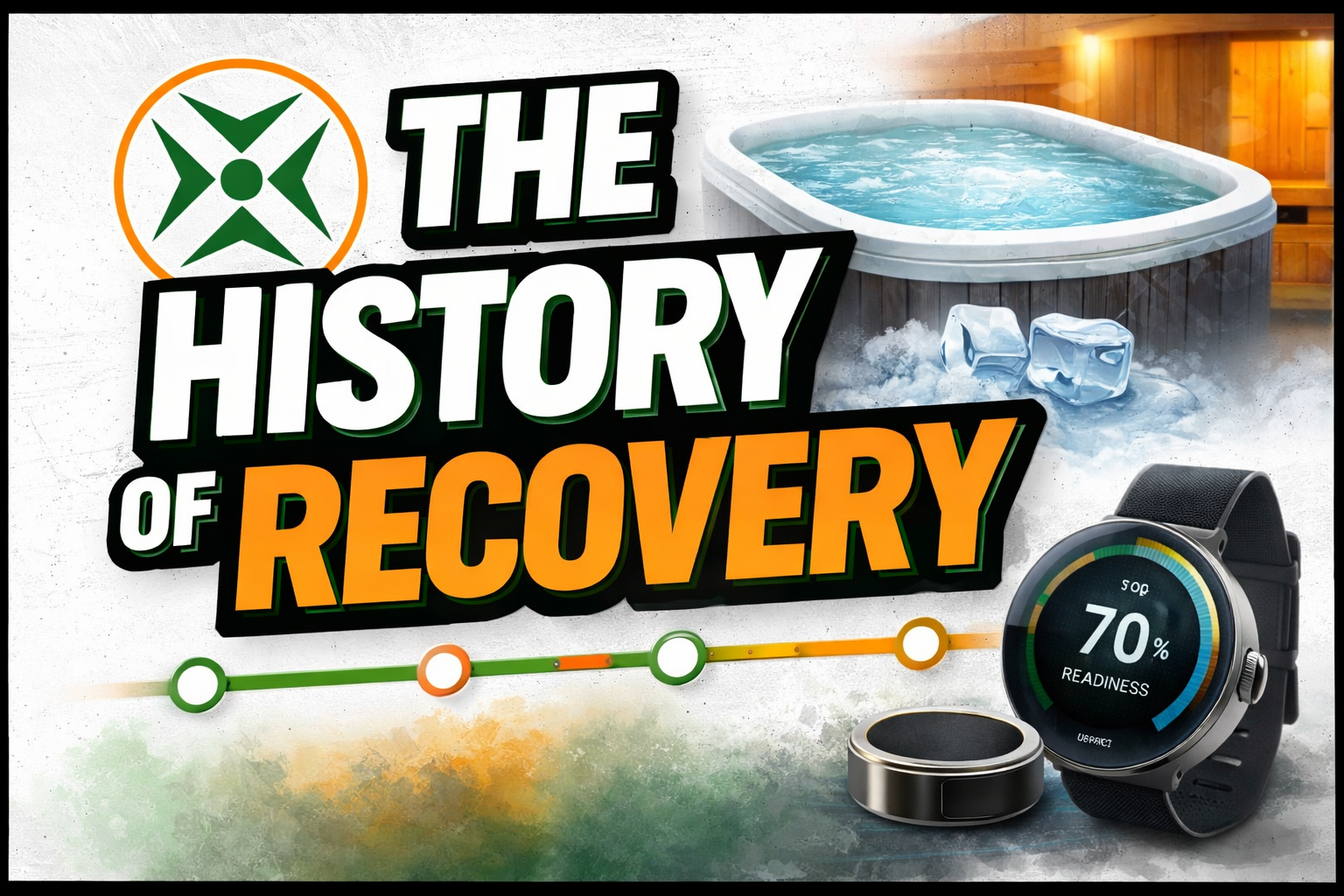The Hidden Power of Investing in Loss
Mike Collette • June 19, 2025
Sometimes you have to get WORSE, before you get BETTER

In a world obsessed with instant results, there’s something deeply uncomfortable — and profoundly powerful — about choosing the slower path. The one that doesn’t guarantee quick wins. The one where you might struggle more now to grow stronger later. This is the mindset behind what Josh Waitzkin
calls “investing in loss.”
Waitzkin, a chess prodigy turned martial arts champion, explains that progress often requires us to deliberately step into discomfort.
To take a few steps back. To be willing to look bad, lose short-term battles, and unlearn rigid habits — all in service of something far greater: mastery.
It’s a hard sell. Especially in with kids youth sports. And not so much to the kids... but to us as parents.
We’re wired to want the scoreboard to validate our choices. We cheer when our kids play on the "top team," score goals, or get more playing time. We associate winning with progress, and struggle with stagnation. But the truth is: some of the most important growth happens beneath the surface, during the awkward, inefficient, sometimes humbling stretch between knowing and becoming.
Growth Rarely Looks Linear
Ask any great performer — in sport, music, business — and they’ll tell you: there was a season when they had to rebuild from the ground up.
Maybe it meant fixing a flawed movement pattern. Or playing with more skilled teammates and feeling outmatched for a while. Maybe it was about shifting their focus from output (stats, wins) to input (discipline, mindset, skill acquisition).
In each case, they temporarily sacrificed certainty for growth.
They invested in loss.
The Beginner’s Mind
One of the most powerful developmental mindsets is what’s called “shoshin”
in Zen Buddhism — beginner’s mind. It’s the ability to approach any challenge with openness, curiosity, and a willingness to fail forward. Kids actually do this naturally… until adults start keeping score.
As parents, coaches, and mentors, our role isn’t to shield kids from struggle — it’s to frame struggle as meaningful, and guide them through it. That means valuing progress over polish. It means recognizing that playing on the "best team" right now isn’t always best for their development. Sometimes the more powerful move is being in an environment where they have to lead, adapt, learn.
Winning Later Means Learning Now
Investing in loss doesn’t mean losing for the sake of it. It means being strategic about what matters most in the long run.
It’s trusting that the player who struggles to keep up today might, with the right support, become a more complete, confident athlete tomorrow.
It’s accepting that development doesn’t always feel good — but it’s worth it.
It’s remembering that the best stories don’t come from comfort zones — they come from growth zones.
So the next time your child feels behind, or the team isn’t dominant yet, or the short-term outcome doesn’t match the effort — pause. Look closer.
They just might be in the middle of an investment that pays off for years.
Previous Blogs

Sharang is a standout part of the Prototype community—steady, positive, and always putting in the work—and his commitment to consistency, camaraderie, and long-term progress makes him a perfect example of what PTS is all about. Below he answers some questions and shares his experience. Share your experience at Prototype—favorite memories, moments, or stories or what’s your favorite part/what do you look forward to? What stands out most about Prototype is the camaraderie. The members, especially in the 7AM and Noon classes, create a great balance of fun and focus. Everyone is friendly and supportive, but when it’s time to work, people take the WODs seriously and push themselves to improve. That combination can be hard to find. All the coaches play a huge role in setting that tone. My favorite moments are the everyday ones i.e. showing up, putting in the work together, leaving class feeling accomplished. What I look forward to most is continuing to train alongside people who genuinely enjoy the process and want to get better. “Because summer’s coming.” Who at Prototype has made the biggest impact on you and why? As a dad of two young daughters, the people who’ve made the biggest impact on me at Prototype are the women in the gym. They all train with confidence, strength, consistency and set a powerful example. It’s the kind of environment I hope my daughters grow up seeing where strength is normal and earned. What are your hobbies and activities outside the gym? I dabble a bit in photography, star gazing and love to travel. Playing atrocious golf. How has Prototype helped you or solved a problem for you? Prototype has helped me stay active. There’s a real sense of happiness and accomplishment after each workout, and that feeling has become addictive in the best way. Knowing I’ll leave class feeling stronger, physically and mentally, keeps me coming back. Prototype has turned working out from something I should do into something I genuinely want to do, which has made a huge difference in maintaining a sustainable fitness routine. What are your current fitness goals? Steady progress and longevity. If I can keep lifting, moving well, and feeling good years from now, I’ll consider that a win. I hope my future self will thank my present self. Favorite Quote If you can’t explain it simply you don't understand it well enough.

Greg is an amazing part of our community — consistent, encouraging, and ready to get after it. He truly represents what the PTS community is all about. Prototype of the Month is well deserved! Below, he answers a few questions about his time at PTS. Share your experience at Prototype—favorite memories, moments, or stories or what’s your favorite part/what do you look forward to? I definitely look forward to that feeling of clarity after finishing up a workout. I feel ready to tackle the rest of the day. Sometimes I have trouble getting mentally ready for a tough looking metcon, but I always feel better afterwards. Who at Prototype has made the biggest impact on you and why? All the coaches and members are great, I look forward to seeing everyone when I am there, but the person who has made the biggest impact is Bridget Owens. She is my motivation and always pushes me to keep going and push myself to get better. What are your hobbies and activities outside the gym? I love cycling and mountain biking, the workouts at prototype have definitely helped improve my fitness so that I can do better on the bike even though I don’t get out as often as I would like. Also spending time with my family, grilling and BBQing when the weather is nice and getting to the beach in the summer. How has Prototype helped you or solved a problem for you? Prototype has helped enormously with my level of anxiety, I was really struggling when we first moved into town, the community and workouts at Prototype have been a life saver for my mental health. What are your current fitness goals? I want to get better at gymnastics, maybe get some toes to the bar. Favorite Quote Two Quotes: “Bone on bone, stack it” -Jon “Activate the lower half” -Brian
Climb to New Heights
Prototype Training Systems is more than a gym - it is a lifestyle. Join us today!


